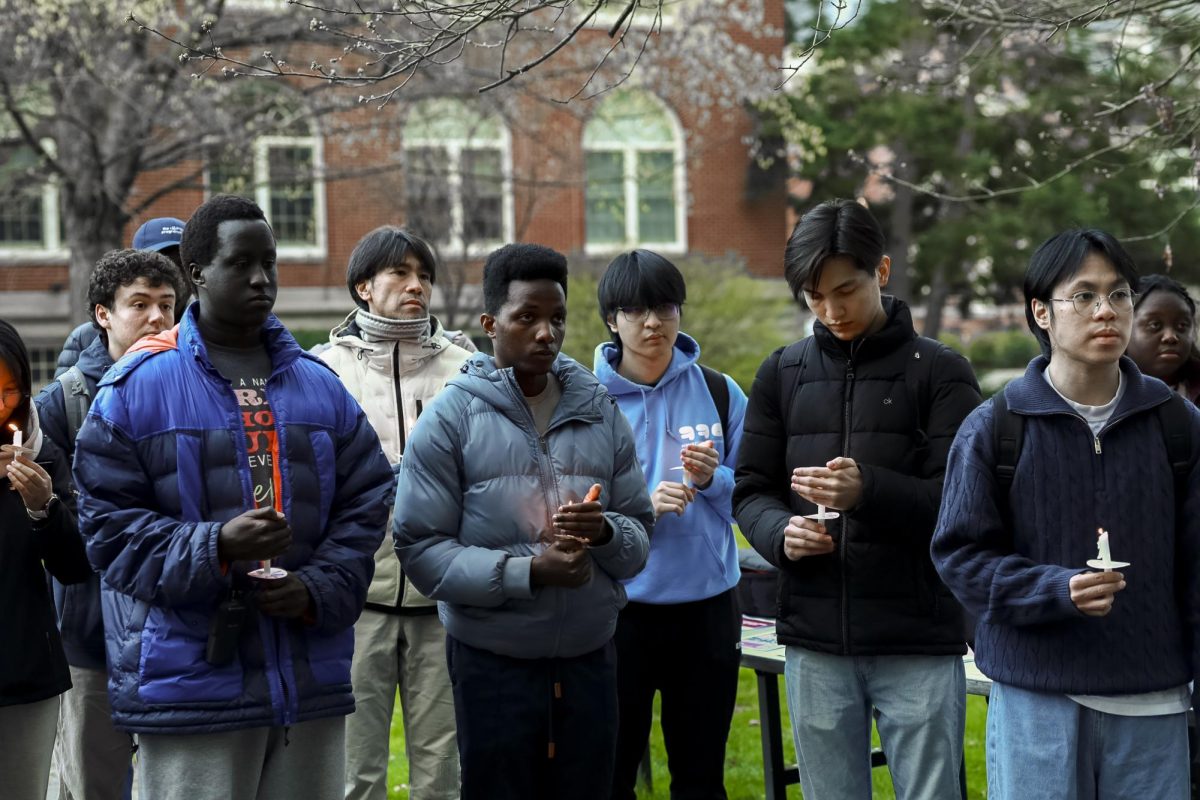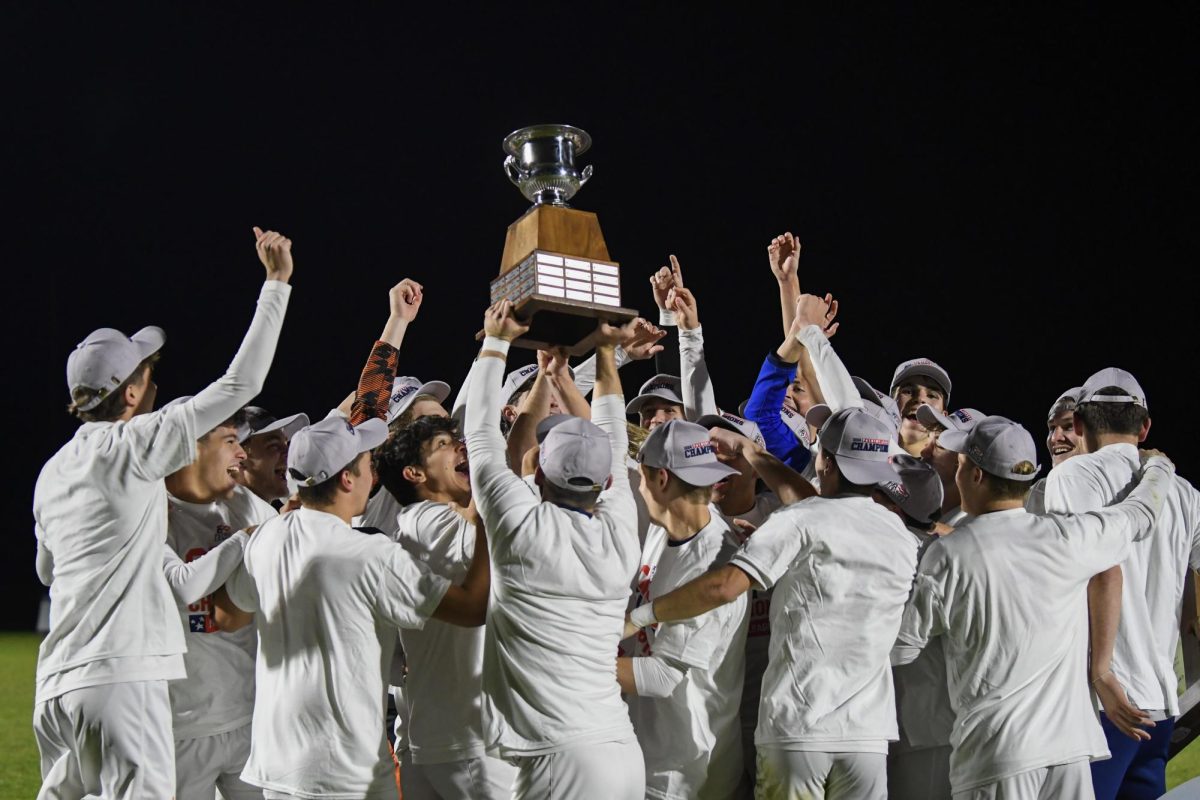Unpacking the Office of Global & Off-campus Education
September 10, 2016
Each year, approximately 400 to 500 University students study in foreign places to expose themselves to new surroundings and an international experience. While most return to campus satisfied with their time abroad, many also express discontent with the difficulties they faced in choosing an appropriate international program or with the program itself, and largely fault the University’s Office of Global & Off-campus Education.
Roughly two years ago, as the Bucknell Student Government (BSG) Student Advocacy Chair, Amanda Battle ’18 conducted a survey gauging student satisfaction. Battle said that the survey received about 200 respondents encompassing all class years who expressed “generally pretty negative” views about the study abroad system predominantly due to “a lack of communication about deadlines, still [having to pay University] tuition, poor communication in general, challenges of using non-Bucknell programs, and more.”
Abroad Tuition
Some of these concerns were echoed by Mary Agrusti ’18, who is currently studying in Copenhagen, Denmark with Study Abroad in Scandinavia.
“Some students drop out of Bucknell completely [when going abroad] to save a lot of money. It’s ridiculous that we have to pay this enormous tuition even though we’re not at the University … to think that that opportunity is out of your reach because of finances is just proof that people with more money have more opportunities to go abroad,” Agrusti said.
Director of the Office of Global & Off-campus Education Stephen Appiah-Padi said that the issue of paying University tuition when abroad is “an age-old concern.” He expressed his wish for students to understand that, even though they are studying abroad, they are still students of the University.
“Tuition abroad should not prevent you from going abroad. As long as your tuition is paid, [the University] will make sure you are taken care of wherever you go. Even if your tuition is higher abroad than it is at the University, the University will take care of it,” Appiah-Padi said.
Additionally, students who are given financial aid at the University can also receive it abroad. If they wish to pay less, Appiah-Padi says they do have the option to drop out of the University for a semester.
Premature Deadlines
Holly Grosholz ’17, who studied abroad through Boston University’s London Internship Program last spring, expressed her frustration with the deadlines imposed on non-University programs that have rolling admissions, which can be set as early as a year prior to the semester spent abroad.
“I spent all summer talking to my adviser about a program, and upon meeting with her during the first week of school junior year to make sure I had everything set, she told me they might not allow me to apply to the program, even though the program deadline wasn’t until October, because I missed the Bucknell deadline. [Cue] endless stress over not being able to do the program I had been planning on all summer,” Grosholz said.
Appiah-Padi said that these early deadlines are made because some programs are very competitive and fill up quickly.
“We create an early deadline so we can review everything early enough so they will be granted acceptance,” Appiah-Padi said.
Less Assistance with Non-Bucknell in Programs
Another main problem with the Global Education office is their lack of focus or attention to students studying through non-Bucknell in programs, according to Grosholz.
“If you’re doing a Bucknell in program, they will do so much for you, [like] help you through the visa process, sometimes even send all your stuff to the embassy so you don’t have to go. None of that assistance seems to be there for non-Bucknell in programs, which is a huge issue since we only have a handful of Bucknell in programs,” Grosholz said.
Appiah-Padi agreed that study abroad advisors need to provide more assistance for Bucknell in students.
“With Bucknell in programs, [the University] is the provider of the program. And with non-Bucknell in programs, the provider takes care of everything that has been approved after the Bucknell in program, like visas and other post-application issues,” Appiah-Padi said.
Lack of Communication
Meghan Byrd ’16 served as an intern to the Office of the Provost through the Undergraduate Executive Internship Program throughout her senior year at the University. Battle showed Byrd the cumulative results of the campus survey, which indicated that roughly 13 percent of students were frustrated with the lack of programs offered through the Global & Off-campus Education Office, 26 percent with its lack of accessibility, 30 percent with its lack of professionalism, and 62 percent with its lack of communication.
Lauren Hudson ’18 stated that her abroad experience with Bucknell in London was particularly disturbed by this lack of communication between the Office of Global & Off-campus Education and University students.
“The last week of our program, my classmates and I discovered that we were responsible for our own transportation from our housing to Heathrow Airport. This ended up being [an expensive] ride that nobody had budgeted for, which should have been communicated by [the Office] prior to departure,” Hudson said.
Additionally, when Hudson arrived in England for orientation, she was told by the program directors that a 3,500 word paper regarding her internship was due at the end of the program. She said that this was not communicated to herself or other students when they initially signed up for the program through the Office of Global & Off-campus Education.
“You’d think with all of the crazy stuff going on in the world right now they would be astute about their planning and explicit in their communication,” Hudson said.
Inability to Study Abroad in Spring
While at the University, Byrd began a dialogue with the Office of Global & Off-campus Education regarding such student concerns, and found that much of the frustration “stems from student misunderstanding or students having unrealistic expectations.” For example, Byrd learned that there was an overwhelming number of students who preferred traveling abroad in the spring semester in comparison to the fall semester, but said that “it’s not feasible” for students to expect the University to accommodate all of them.
According to Appiah-Padi, the ratio of students going abroad in the fall in comparison to the springtime was 1-to-4 in 2009. Now it has been minimized to 1-to-2 in that the Office of Global & Off-campus Education tries “as much as possible” to equalize the number of students going abroad each semester.
“If we allow all the students to go in the spring, we have a problem with filling classes in the fall. Classes are going to be empty, beds are going to be empty, if everyone goes abroad in the spring. It affects a lot of other operations on campus,” Appiah-Padi said.
Students who are denied the opportunity to go abroad in the springtime can appeal to the University, but the foundation of their appeal has to be entirely academic and backed by their academic advisors.
“You just have to be flexible, a little bit. The whole point is to be abroad, to achieve, and to get that experience. If you can make yourself a little bit uncomfortable in terms of the semester that you go in, you still have those same goals achieved,” Appiah-Padi said.
Fulfilling CCC Requirements/Transfer of Credits
Appiah-Padi also addressed the issue of transferring credits and fulfilling requirements as a point of frustration for many students, including Grosholz.
“Considering that most students study abroad their junior year, [the Common Core Curriculum requirements] can make it very difficult for people to find the courses they need, and that are approved, while abroad … I think if Bucknell focused more resources on establishing strong programs with more academic flexibility, it would allow many more students to study abroad,” Grosholz said.
Agrusti experienced difficulty deciphering which classes she could and couldn’t take outside of the University, stating that the list of approved courses found on the University website is “very obscure.” Discouraged by the process and by the Office of Global & Off-campus Education, Agrusti ultimately had to speak with two deans and three professors in order to get her courses approved. She added that her study abroad advisor was “no help.”
“Instead of looking into somewhere new, I wanted to avoid the headache in general and go somewhere everyone goes,” Agrusti said, referring to Copenhagen.
Appiah-Padi said that problems can occur even when students get their international courses approved by their advisors before going abroad.
“The problem that would come, would be when a student has a course that has been approved here for credit transfer. But then they go on site, they realize that, oh, the course [has been cancelled], so they have to reconsider. It happens here; it happens everywhere around the world,” Appiah-Padi said.
In that case, the Office of Global & Off-campus Education asks the student to take another course that can be approved by the department and by the Registrar’s Office. However, there are instances when no other courses are available for approval, and the student is forced to underload when abroad.
“The issue of credits are handled by the Colleges and the Department. We have nothing to do with who gets a credit and who doesn’t get a credit,” Appiah-Padi said.
“We need more communication and more transparency, but … I think that throughout conversations, they recognized both places that they were doing really well and places that they could improve,” Byrd said.
























